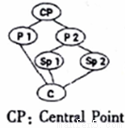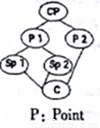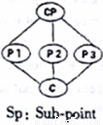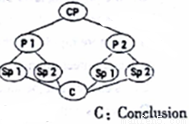题目内容
Today we had an American family, the Robinsons, for Sunday dinner. Mr.Robinson is my mother's co?worker.
Mr and Mrs.Robinson and their two young______ came at about 6:00 p.m. Mrs.Robinson gave Mum a bunch of fresh flowers,______ color, freshness and their good will. Mum did the _______and it was left to ourselves to get to know each other. The two girls Judy and Annie and Xiao Hong had ______ fun with our little cat.
Mrs.Robinson is much ______ than her husband. There was a moment of embarrassment when Granny asked about her ______. Mum was about to apologize______ Mrs.Robinson laughed and said it was quite all right and that she had been here ______ enough to know it's the Chinese custom. She ______ told us that she was 32, though her husband was 52.
And of course they entirely ______ the dinner. Like a perfect Chinese hostess, Mum and especially Granny, ______ stuffing(填)them with food and urging them to eat and to drink, apologizing all the time that it's a homely meal.______, Mrs. Robinson said to Mum, “In the West any hostess would be proud of such a feast instead of apologizing for it, and we don't urge the guests to eat or drink. ______ so many good things before me, I certainly don't need any urging. The ______ is how to prevent myself overeating.” We all ______ laughter at that.
When they ______ to leave, they thanked us not only for the excellent dinner, but for giving them such a nice ______. Besides, they insisted on giving every one of us a hug and a kiss, ______ did embarrass me. But I think Granny was really ______ when they kissed her.
It's surprising how a little good will on both sides can ______ language and cultural barriers.
1.A. sons B. babies C. daughters D. friends
2.A. bringing B. taking C. fetching D. adding
3.A. decoration B. direction C. introduction D. reception
4.A. powerful B. hopeful C. speechless D. endless
5.A. older B. younger C. thinner D. taller
6.A. marriage B. age C. belief D. salary
7.A. while B. when C. but D. and
8.A. luckily B. happily C. long D. short
9.A. honestly B. gradually C. excitedly D. loudly
10.A. prepared B. tasted C. enjoyed D. swallowed
11.A. continued B. stopped C. suggested D. kept
12.A. However B. Besides C. Therefore D. Instead
13.A. For B. With C. Over D. As
14.A. danger B. pain C. question D. problem
15.A. broke out B. gave off C. burst into D. set out
16.A. came B. hurried C. got D. rose
17.A. day B. time C. meal D. gift
18.A. they B. it C. which D. that
19.A. touched B. frightened C. disappointed D. encouraged
20.A. change B. improve C. damage D. break
| A. | the | B. | / | C. | a | D. | an |


 B.
B. 
 D.
D. 